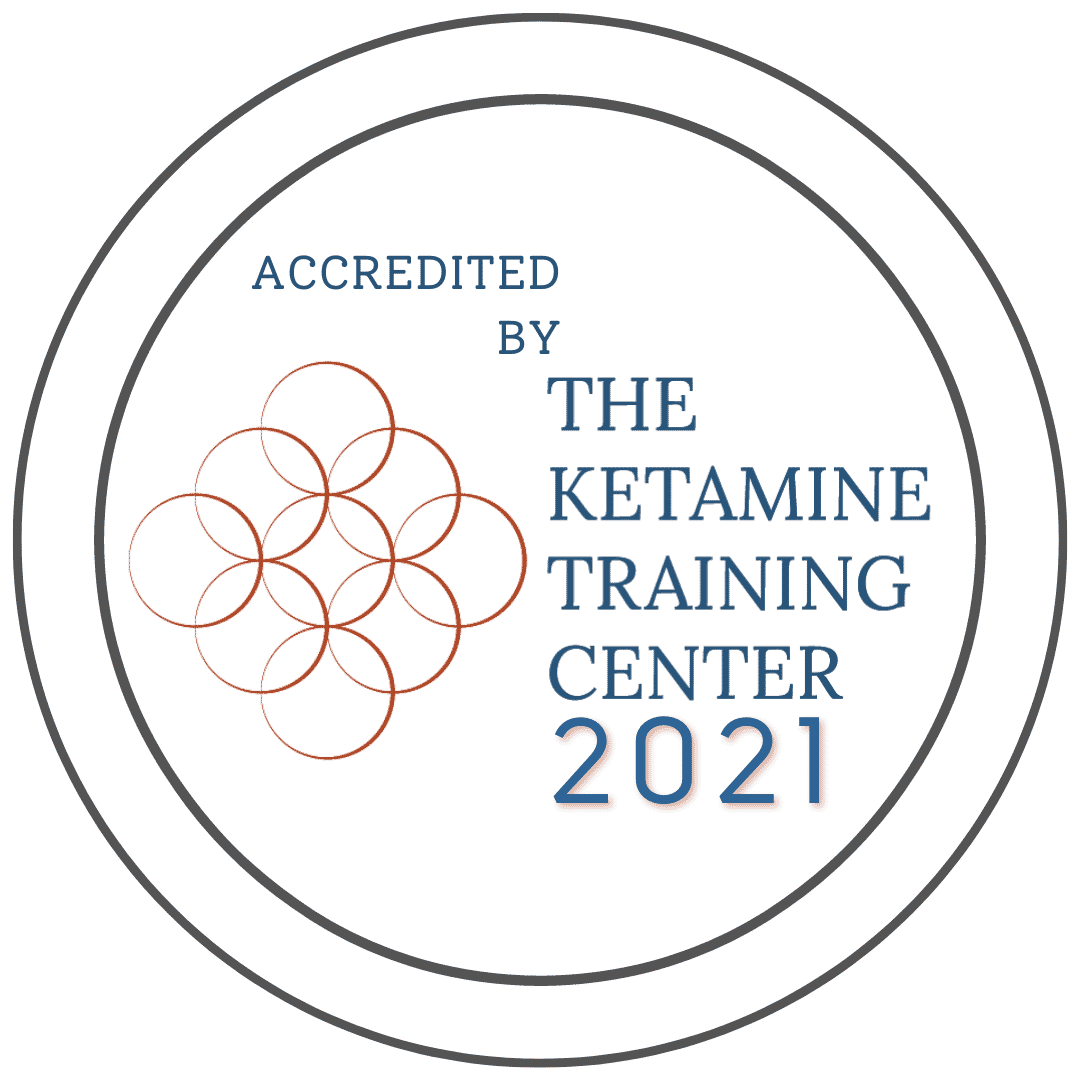

Ketamine vs Mushrooms for Treatment Resistant Depression
Depression is a prevalent problem around the globe. It’s one of the most common mental illnesses affecting American adults yearly. Statistics from the National Institute of Mental Health reveal how common depression is. Approximately 30% of U.S. adult females and 11.5% of adult males had a major depressive episode in the past year. Prescription antidepressants and psychological counseling provide relief for many people.
Unfortunately, standard treatments don’t work for everyone. For some people, depressive symptoms don’t improve with traditional therapies. These people likely have a form of depression called treatment-resistant depression. Individuals with this condition often feel frustrated and hopeless.
Life can feel overwhelming when it seems nothing can mitigate your symptoms. But alternative therapies like ketamine and psilocybin (i.e., “Magic mushrooms”) may help. For people with major depressive disorder, they may be the last hope for relief. Here’s what to know about ketamine vs mushrooms for depression.
Ketamine Overview
The United States Food and Drug Administration approved ketamine for human consumption in 1970. Ketamine has a long history of use for both therapeutic and recreational purposes. It is a dissociative medication initially used to sedate patients before surgery. It was also given to soldiers for pain management during the Vietnam War.
As with any psychedelic drug, people have used ketamine recreationally. It can cause users to feel detached from themselves or the environment they’re in. It can also cause sight and sound distortions. Illicit use and abuse of ketamine may contribute to psychotic disorders like schizophrenia. However, this medication is safe to use under the direction of a qualified medical professional.
Today, ketamine is often used as an anesthetic in veterinary environments. It is also used for treatment-resistant depression. It can be very effective in cases where other treatments have failed. Unlike other depression treatments, the effects of ketamine are almost immediate. This is an important benefit for people needing prompt help in reducing suicidal ideation.
“Magic Mushrooms” Overview
Many view ketamine as a legitimate medical treatment. But most people still view “magic mushrooms” in a negative light. Mushrooms, indeed, have a long history of illicit use. But when it comes to ketamine vs mushrooms for depression, they both show great potential. “Magic mushrooms” are well-known for their hallucinogenic properties. Psilocybin is the key mushroom ingredient that creates psychedelic effects. It is a compound found in hundreds of mushroom species. It’s converted to hallucination-stimulating psilocin after consumption.
Psilocybin is not naturally addictive. However, many people use it recreationally to induce sensory distortion and euphoric feelings. Illicit use of psilocybin does not guarantee a positive experience. Many people experience negative psychological effects after taking the drug. Some may feel uncontrollable panic until the hallucinations subside. Some may even become a danger to themselves and those around them due to the mushrooms’ effect. Those with a family history of psychosis should never use “magic mushrooms.” They have a higher risk of experiencing adverse psychiatric reactions to psilocybin.
Psilocybin is a Schedule I substance. This means that it has a high potential for abuse. The Drug Enforcement Administration (DEA) also believes it has no legitimate medical purpose. However, studies show that the DEA may be wrong. Controlled administration of this drug can have notable and lasting antidepressant effects.
There are some similarities and differences between ketamine and mushrooms for depression. Therefore, it’s important to understand how each medication works—the following sections detail how these hallucinogenic products reduce symptoms of depression.
How Ketamine Works
Ketamine functions differently from standard antidepressants. Serotonin reuptake inhibitors (SSRIs) are the most common medications prescribed for depression. They work by increasing serotonin levels in the brain. Serotonin is a hormone that helps regulate emotions and mood. It may contribute to feelings of happiness and well-being. That’s why it’s often referred to as the “happy chemical.”
It takes time for SSRIs to reduce symptoms of depression. Some may need to take these drugs for eight weeks before noticing any symptom improvement. For people with major depressive disorder, waiting may be too long. They may need a treatment that provides more immediate results. Plus, some people don’t respond to SSRIs at all. Therefore, they may need a more powerful alternative.
That’s where ketamine can make a huge difference. It can improve the lives of people who are suffering from major depressive disorder. Ketamine works on the glutamate system in the brain instead of increasing serotonin levels. Glutamate is a chemical made in the body. It plays a role in brain function and helps the nerves send signals throughout the body. It may also impact how you feel about yourself. Controlled ketamine therapy may improve glutamate levels and create connections in the brain. These connections may decrease suicidal thoughts and ease symptoms of depression.
Unlike SSRIs, the effects of ketamine are almost immediate. The drug doesn’t stay in the body very long. However, its effects often linger for days or weeks. There are some key differences between how ketamine vs mushrooms alleviate depression. Here’s a brief overview of how psilocybin manages symptoms of treatment-resistant depression.
How Psilocybin Works
Psilocybin’s therapeutic effects are not yet fully understood. However, early studies show that Psilocybin has antidepressant effects. Like ketamine, psilocybin produces almost immediate relief from treatment-resistant depression. The positive effects often linger after the substance is no longer in the system.
It’s not yet known precisely how psilocybin works on the brain to reduce depression. However, evidence suggests psilocybin works at the serotonergic receptor. This means it likely works similarly to SSRIs by increasing serotonin in the brain. But it also changes glutamate levels in the brain, much like ketamine does. Additionally, studies of rats treated with serotonergic psychedelics showed increased synaptic plasticity. The greater the synaptic plasticity, the greater the brain’s ability to rewire and repair itself.
Research suggests people with major depressive disorder have reduced synaptic plasticity. By restoring synaptic plasticity, ketamine may be able to reduce depressive symptoms.
How to Choose Between Ketamine vs Mushrooms
Currently, it’s quite easy to choose between ketamine vs mushrooms. The former is legal throughout the United States, while the latter is not. However, some cities and states are considering legalizing psilocybin for medical use. Oregon approved a ballot measure in 2020 to allow psilocybin-assisted therapy in 2023. It is the first state to legalize the use of the psychedelic substance, and others may soon follow.
There’s a possibility therapeutic psilocybin will become legal in your state. If it does, you’ll have a difficult decision to make. It may be challenging to choose between ketamine vs psilocybin for depression. They are both interesting options that could yield great results. Researching both solutions can help you better understand their major differences.
You should also consult with your doctor about the pros and cons of each treatment. Your doctor can help you make a well-informed decision. But until psilocybin becomes legal in your area, you may want to consider receiving ketamine treatments. Ketamine has a proven history of efficacy and safe use for depression.
Get Leading-Edge Treatment for Depression
Many people still have negative opinions of ketamine vs mushrooms for depression. But the truth is, these substances fill a need other drugs can’t. They can have a powerful and positive impact on people who don’t respond to other treatments. If you have all but given up on finding relief from your symptoms, please consider Ketamine Therapy in Salt Lake City. It is a promising solution for treatment-resistant depression. To schedule a consultation, contact Ketamine Therapy SLC at 385-685-1410.
Schedule a Ketamine
Treatment Consultation
Schedule an appointment via call or text at (385) 685-1410 or fill out the form below:
By submitting this form you agree to be contacted via phone/text/email
Schedule a Ketamine
Treatment Consultation
Schedule an appointment via call or text at
(385) 685-1410
or fill out the form below:
By submitting this form you agree to be contacted via phone/text/email


